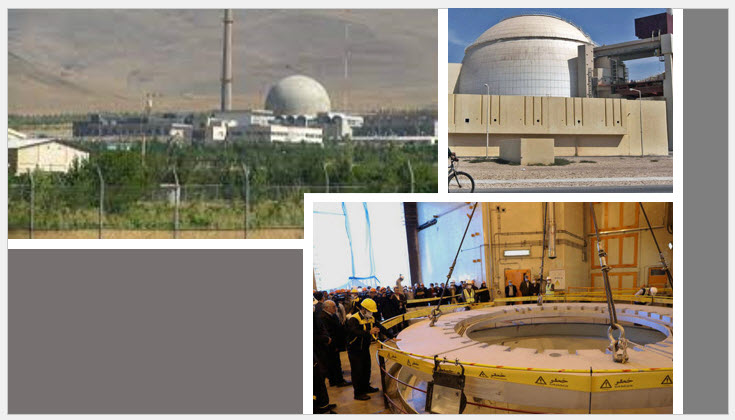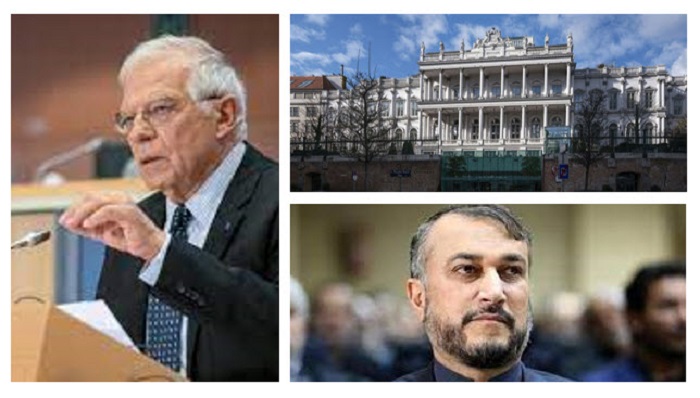
We have seen eight rounds of fruitless negotiations aimed at revitalizing the 2015 nuclear deal 15 months into the new US administration.
Following the November 2020 presidential election in the United States and the inauguration of a new administration in the White House, the mullahs’ regime in Iran began a flurry of talk about “new opportunities,” with former regime president Hassan Rouhani emphasizing on November 12, 2021, that “no one is allowed to miss out on this opportunity!” Supporters of the initiative believed that a Democratic administration in the United States would create “a better environment for closer relations and better engagement.”
We have seen eight rounds of fruitless negotiations aimed at revitalizing the 2015 nuclear deal 15 months into the new US administration. Not only has US President Joe Biden refused to re-enter the 2015 nuclear deal and lift major sanctions, but the Iranian regime is also becoming increasingly isolated. Josep Borrell, the European Union’s High Representative for Foreign Affairs and Security Policy, warned Iranian regime Foreign Minister Hossein Amir-Abdollahian in a recent phone call that the nuclear talks would continue to stall.
The United States Ambassador to the United Nations, Linda Thomas-Greenfield, recently stated that there is no agreement with the Iranian regime and blamed the mullahs for the failure of the nuclear talks.

Even if an agreement is reached, a US State Department spokesperson said there will be no sanctions relief beyond the Joint Comprehensive Plan of Action (JCPOA).
Even if an agreement is reached, a US State Department spokesperson said there will be no sanctions relief beyond the Joint Comprehensive Plan of Action (JCPOA), the official name for the 2015 nuclear deal, and that if the Iranian regime wants sanctions relief beyond the JCPOA, it must address concerns that go beyond the nuclear deal. As part of its “strategic depth” in the region, the regime must abandon or at the very least deescalate its support for terrorism and cease destabilizing activities in the Middle East. It’s worth noting that regime Supreme Leader Ali Khamenei described such an outcome as the “beginning of the end” of his regime back in June 2016.
“The US is deeply concerned about Iranian malign influence, especially as it undermines the stability and integrity of Iraq’s sovereignty and national institutions,” Jennifer Gavito, the US Acting Principal Deputy Assistant Secretary of State for Near East Affairs, said on April 22. Iran cannot believe that it can conduct diplomacy while deploying or supporting violence with the other hand.”
In addition, the Spanish judiciary has ordered the extradition of a Turkish national accused of smuggling banned Iranian regime equipment. According to Turkish media, 16 people have been indicted on charges of collaborating with Iranian regime spies to kidnap and return Iranian refugees to the mullahs’ regime.
Changes seen around the world can be attributed to US officials adopting a stronger tone in their recent positions and a series of measures against the mullahs’ regime.
The war in Ukraine is altering the international status quo, with world powers reconsidering their stance on the mullahs’ regime and nuclear talks. In this regard, experts affiliated with the regime’s institutions are issuing serious warnings: “The Americans have come to the conclusion that the JCPOA is less important than the conflict in Ukraine.
Former Iranian MP Mohammad Khoshchehreh said on April 21 that the P4+1, including China and Russia, “are not allocating urgent attention to a quick agreement as they used to.” Middle Eastern countries, particularly Saudi Arabia and Israel, exert pressure on the US administration and oppose any concessions to the mullahs’ regime. There is growing bipartisan opposition in the United States Congress to any concessions to Iran in the Vienna nuclear talks. Extensive measures and revelations by Iran’s opposition coalition, the National Council of Resistance of Iran (NCRI), continue to shed light on the Iranian regime’s ongoing support for terrorism, as well as the destructive role of the Iranian Revolutionary Guards (IRGC) in the mullahs’ foreign terrorism and domestic crackdown.
As a result, the “opportunity” that senior Iranian regime officials were expecting to seize has failed to materialize. Iran’s regime has become increasingly isolated, and its position has weakened.
MEK Iran (follow us on Twitter and Facebook), Maryam Rajavi’s on her site, Twitter & Facebook, NCRI (Twitter & Facebook), and People’s Mojahedin Organization of Iran – MEK IRAN – YouTu

